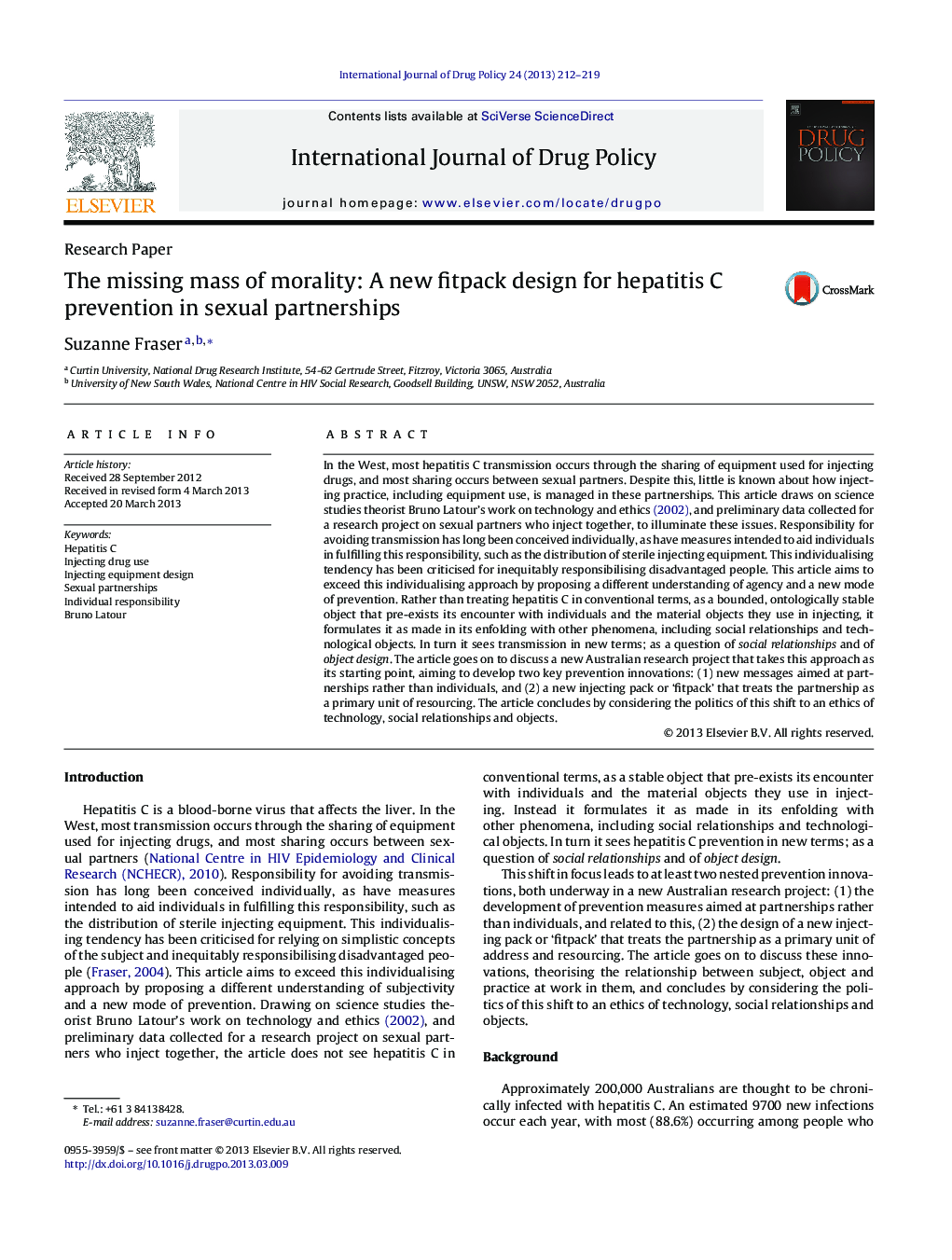| Article ID | Journal | Published Year | Pages | File Type |
|---|---|---|---|---|
| 7514331 | International Journal of Drug Policy | 2013 | 8 Pages |
Abstract
In the West, most hepatitis C transmission occurs through the sharing of equipment used for injecting drugs, and most sharing occurs between sexual partners. Despite this, little is known about how injecting practice, including equipment use, is managed in these partnerships. This article draws on science studies theorist Bruno Latour's work on technology and ethics (2002), and preliminary data collected for a research project on sexual partners who inject together, to illuminate these issues. Responsibility for avoiding transmission has long been conceived individually, as have measures intended to aid individuals in fulfilling this responsibility, such as the distribution of sterile injecting equipment. This individualising tendency has been criticised for inequitably responsibilising disadvantaged people. This article aims to exceed this individualising approach by proposing a different understanding of agency and a new mode of prevention. Rather than treating hepatitis C in conventional terms, as a bounded, ontologically stable object that pre-exists its encounter with individuals and the material objects they use in injecting, it formulates it as made in its enfolding with other phenomena, including social relationships and technological objects. In turn it sees transmission in new terms; as a question of social relationships and of object design. The article goes on to discuss a new Australian research project that takes this approach as its starting point, aiming to develop two key prevention innovations: (1) new messages aimed at partnerships rather than individuals, and (2) a new injecting pack or 'fitpack' that treats the partnership as a primary unit of resourcing. The article concludes by considering the politics of this shift to an ethics of technology, social relationships and objects.
Related Topics
Health Sciences
Medicine and Dentistry
Psychiatry and Mental Health
Authors
Suzanne Fraser,
